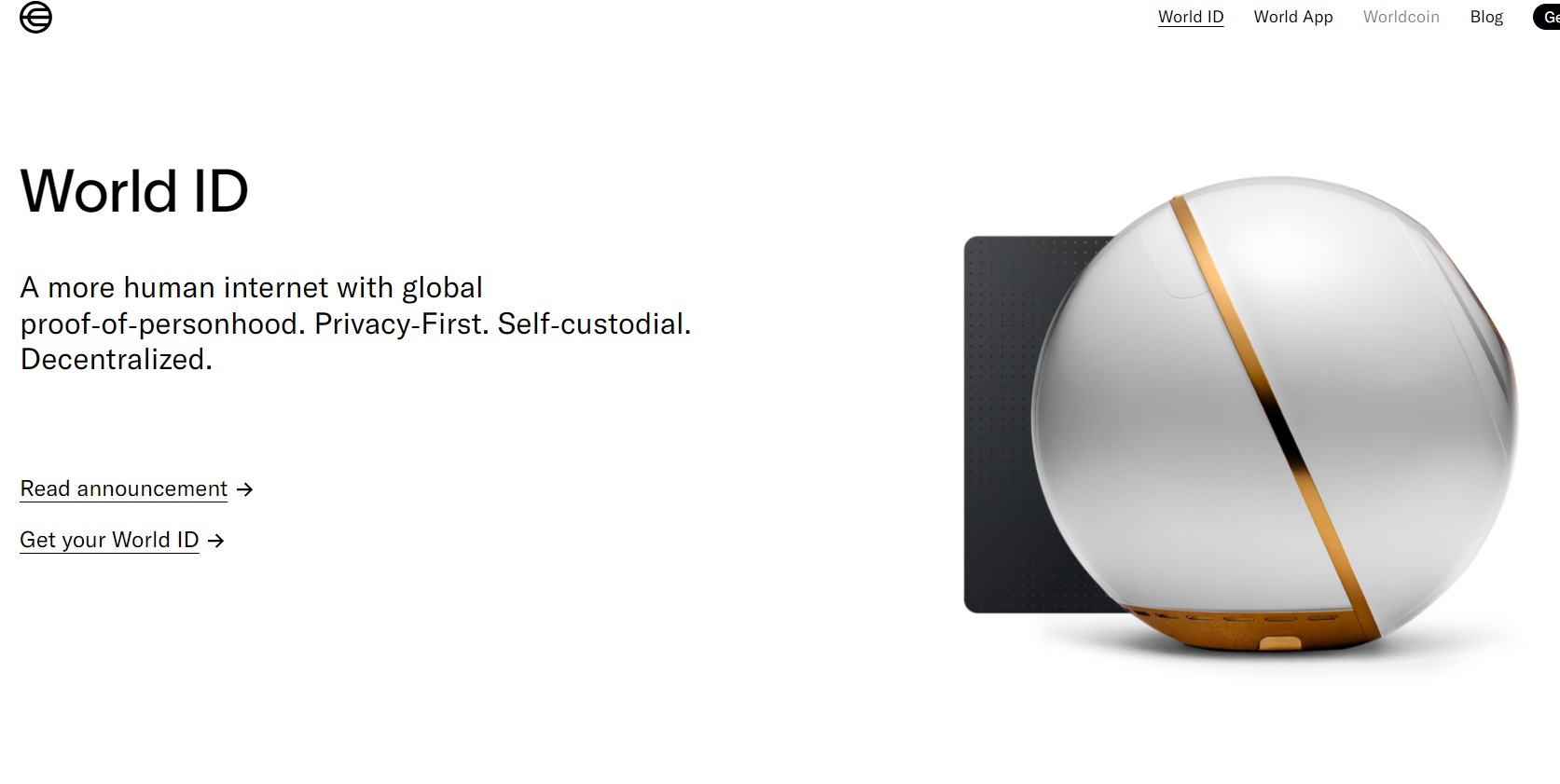2023-09-05

Millions of people around the world have their eyes scanned to be able to use the cryptocurrency Worldcoin, including in Germany. Data protectionists warn, Kenya even bans the system.
The scenario sounds like something out of a science fiction film - but it is already a reality worldwide. The futuristic-looking so-called "Orb" is a shiny silver ball the size of a bowling ball. Around 250 of them are in use in special registration centres around the world, including in Germany. Anyone who wants to can look into the silver ball for a few moments and a scan of the iris is made - the iris is unique to each person, like a fingerprint. Based on this image, a digital identity card is created, the so-called World ID.
In future, everyone will be able to use it to register and identify themselves in online shops, for example. Above all, however, the World ID serves as access to the new digital currency Worldcoin: users can thus prove online that they are human beings. Data protectionists are alarmed, Kenya has even banned the activities. Who is behind the project, what exactly is planned? How many people have already registered with Worldcoin and what concerns do data protectionists have?
Worldcoin is a project by Sam Altman, founder of the company OpenAI, which also developed ChatGPT. The start-up behind it: A company called Tools for Humanity. A German physicist, Alex Blania from Erlangen, is also involved. That's why one of the two German registration centres is also in Erlangen - the other in a shopping centre in Berlin. The new digital currency was launched at the end of July.
The iris scan is to confirm to the system that a real human being wants to register with Worldcoin and not an artificial intelligence. An AI system could otherwise potentially create masses of fake users and abuse the digital currency or other online offerings. "Rapidly evolving AI models can now solve CAPTCHAs and produce content that is convincingly 'human'," Worldcoin's website says.
The crypto project promises users tamper-proof digital proof of identity. Tools for Humanity wants to scan the eyes of all eight billion people worldwide - and thus "become the world's largest human identity and financial network", it says.
More than 2.2 million people from 120 nations have already registered with an eye scan, according to Worldcoin, and the "orbs" are in use in 34 countries. To mark the launch of Worldcoin, founder Sam Altman posted a video on the short message service X, formerly Twitter, of a long line of people queuing outside one of the registration centres.
Beware, not all numbers are so clear and correct either
However, it also became known that people in poorer countries were promised a number of Worldcoin for scanning their iris. This is where the high number of users came from at the beginning of the project.
As quickly as the price of the cryptocurrency Worldcoin initially exploded, it also fell again - in the meantime, criticism of the entire system is becoming louder and louder.
Data protectors warn of security risks. Michael Will, the head of the Bavarian State Office for Data Protection Supervision (BayLDA) said in an interview with Reuters-TV:
"This is nothing less than a global identity register in private hands. Michael Will, Bavarian (a state in germany) State Office for Data Protection Supervision"
The system is "a treasure trove of information for all hackers." A spokeswoman for the Federal Ministry of the Interior told the magazine "Spiegel": "As a lifelong identifier, the retina or iris of the eye are not useful because they can be rendered useless as a means of authentication by accident or illness." And finally, one could also identify oneself unambiguously on the internet with the German online identity card - without the risks of Worldcoin.
The French and British authorities are also taking a closer look at the project. Kenya went even further: the African country, where there had been a run on the registration offices because of the welcome money, stopped all Worldcoin activities. The authorities first had to establish that the project did not pose any risks to the citizens, they said.
Worldcoin European CEO Ricardo Macieira dismisses data protection concerns as unfounded. In an interview with Reuters-TV, he explained:
"Privacy is something we take for granted. You can identify yourself as a person without sharing personal data. Ricardo Macieira, Worldcoin European head
When registering using the "Orb", users reportedly do not have to give their name, address or phone number. In addition, the data needed to create the World ID would be processed exclusively in the device and deleted by default after the ID is created. The technology for establishing identity, which was developed in Germany, complies with European data protection regulations."
We would like to warn you not to become active with Worldcoin. From our point of view, everything is really wrong with this project! Cryptocurrencies should be there to offer an alternative to our existing monetary system. A monetary system that is regulated by the power of the central banks. Where you can easily create more and more money out of nothing and thus inflate the money more and more.
However, private interests seem to play a big role here, because only very few people own a large part of the Worldcoins.
And then this thing with identity, why do you have to digitise the most unique thing about a person? For what should I have to confirm my identity? Without knowing what happens to this data? If people are then also offered Wordcoin, only that they scan their iris, then that is nothing other than a pyramid scheme.